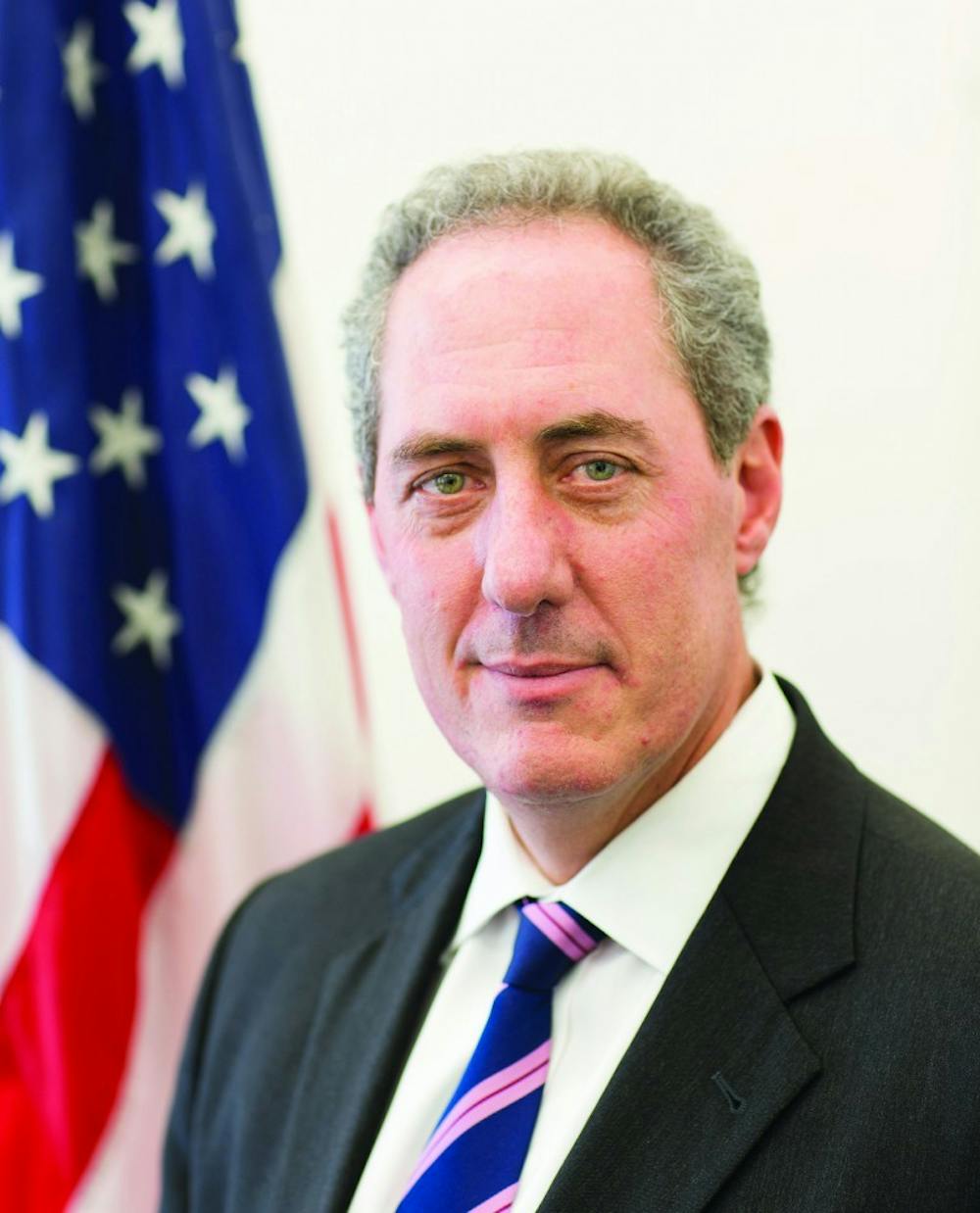World trade policy can’t be advanced in the future without a stronger focus on workers displaced in an economically uncertain world, Michael B.G. Froman ’85, a retired ambassador and former U.S. Trade Representative under President Barack Obama, said in a lecture on Feb. 16. The lecture was a response to steps that President Trump has taken to change existing United States trade policy by withdrawing from the negotiation stage of the Trans-Pacific Partnership. Froman, one of the creators of the TPP, spoke about the implications of Trump's actions and elaborated on actions the US can take to maintain successful trade relations.
“TPP was the most ambitious, high-standard, comprehensive, trade agreement ever negotiated,” Froman said. “Beyond economics, TPP was about showing [the] United States’ leadership in the Asian Pacific, a region which is very much in flux.”
The TPP dealt with trade-related issues such as labor, human rights, environmental issues, and the digital economy. Froman said that the reason the TPP was opposed by both Democrats and Republicans in the 2016 election was that the facts behind the trade agreement were obscured by political agendas. He argued that a combination of “the rise of populism with post-fact politics” prevented politicians from having an honest discussion about the trade agreement.
“It became impossible to have a facts-based discussion on trade,” he said.
Froman explained that Trump’s move to back out of the TPP would restrict the United States’ ability to engage with global markets, which will harm its domestic economy.
“We need access to markets abroad if we’re going to support the kind of well-paying jobs we need in the United States,” he said.
In addition, Froman argued that trade policy becomes a scapegoat for people who are concerned about living in an economically uncertain world.
“Trade becomes the vessel into which people pour their quite legitimate economic worries,” he explained.

Froman said that one of the major reasons for this concern is that quickly developing technologies may automate and replace jobs in the future, leaving many out of work.
“Imagine the anger and resentment if half of the jobs in the US are put at risk because of new technologies,” he said.
The majority of the lecture was devoted to a question and answer session with the audience, with questions coming from local residents, undergraduates, and graduate students in the Wilson School.
“The benefits of trade tend to be broadly dispersed, while costs are acutely focused,” Froman said in response to a question about how the public views the long-term benefits of trade in comparison to its short-term costs. “It’s hard to make that case to people that things they take for granted are due to trade when they see a factory down the street is closed.”

Froman said that trade agreements that prevent countries such as Vietnam from paying workers unfairly low wages and that allow labor unions to organize are examples of the tangible benefits of trade policy.
One question dealt with whether a lack of transparency in TPP negotiations was the reason that Democrats didn’t support it in the recent election.
“Our approach was to maximize transparency while getting the best possible deal for the United States,” Froman said. “When choosing between one and the other, I would choose the best deal for the United States.”
Throughout the process of creating the TPP, its negotiators attempted to maintain transparency by publishing summaries of negotiation rounds and inviting stakeholders into the discussions, Froman said.
He also fielded a question about how the United States can reintroduce fact-based debate into the national discourse.
“I think we have done trade policy and advocacy the wrong way in the past few years,” Froman said. He proffered the TPP as one example of the way trade policy can become entangled in political concerns and eventually stall.
“The proponents of the TPP want to see the final agreement in all of its detail to make sure they got all of their needs met before they’re willing to commit any effort. The opponents of TPP don’t need to see the final agreement to oppose it,” he added. “That left us in a fairly deep hole that’s hard to climb out of.”
“I think what we need is a broad public engagement campaign about what it means to live in the global economy and how we’re affected positively and negatively,” Froman explained. He cited recycling and anti-tobacco public service campaigns in the United States as examples of the kind of long-term efforts needed to educate the public on the implications of the global economy.
Froman also reflected on how his Princeton experience, particularly his engagement in task forces while studying in the Wilson School, positively impacted his career in creating and negotiating trade policy in the United States government.
“I can say with great confidence that there is a direct line between what I did at the Woodrow Wilson School and what I did as Trade Representative,” Froman said.
The lecture, entitled “Up to the Minute Talk: The Future of Trade in a Trumpian World,” was held at 4:30 p.m. on Feb. 16 in Robertson Hall. The event was sponsored by the Wilson School Office of Public Affairs and Communications.








